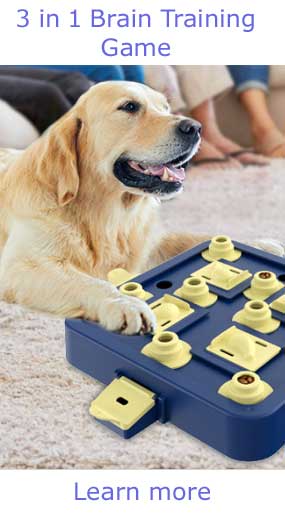Just like humans, our canine companions can experience boredom.
This emotional state, often overlooked or misunderstood, can have significant impacts on a dog’s well-being.
BOREDOM IN DOGS
Boredom in dogs usually stems from a lack of mental and physical stimulation.
Dogs are active, curious animals, naturally wired for hunting, exploring, and problem-solving.
When these needs are not met, boredom sets in.
This is particularly prevalent in breeds bred for specific work (like herding or retrieving) when they don’t have an outlet for these instincts.
The consequences of dog boredom are far-reaching.
It can manifest in various unwanted behaviors, serving as a distress signal that their needs are not being met.
These behaviors can range from incessant barking and pacing to destructive habits like chewing furniture or digging up the backyard.
In extreme cases, boredom and the resulting frustration can lead to aggression.
UNDERSTANDING BEHAVIOUR
It’s crucial to recognize that these behaviors are not signs of a “bad dog”; they are desperate attempts to self-soothe and find some form of entertainment.
It’s our responsibility as dog owners to understand and address their needs.
One of the best ways to combat boredom is through toys that promote active engagement, such as chew and squeaky toys.
These toys can provide hours of entertainment, and they also serve a dual purpose by promoting dental health.
Puzzle toys like KONGs, filled with a treat or kibble, can provide mental stimulation as the dog works to release the food.
Physical exercise is another critical factor.
Regular walks and playtime can help burn off excess energy and reduce boredom.
Remember, a tired dog is a happy dog.
For puppies, who are naturally more energetic and curious, additional playtime and training sessions can be beneficial.
IN CONCLUSION
Understanding and addressing boredom in dogs is crucial for their mental and physical well-being.
Offering a variety of stimulating toys and ensuring regular exercise will go a long way in keeping your furry friend content and well-behaved.
Remember, a mentally stimulated dog is not only a happy dog but also a loving and relaxed companion.













